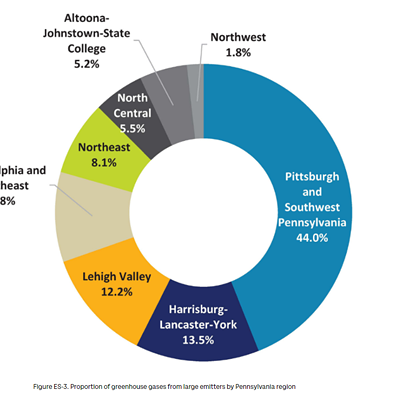Monday, December 18, 2017
U.S. Rep. candidate Beth Tarasi says Congressman Keith Rothfus should reveal how the tax bill would benefit him
U.S. Rep. Keith Rothfus (R-Sewickley) has been a strong supporter of Congressional Republicans’ efforts to pass their tax-cut bill. He voted in favor of the U.S. House version of the bill and has offered full-throated support for the House-Senate version introduced on Dec. 15.
“This tax reform legislation puts more money in the pockets of hardworking Pennsylvanians, creates more jobs in our state, and lessens the power of Washington,” said Rothfus in a November statement.
But non-partisan analysis of the bill shows most of tax-cut bill benefits will go to the wealthy, and any benefits for working-class Americans will be limited. While income tax cuts will be doled out to all Americans initially, those cuts will expire in 2025. The corporate tax rate, however, will be cut from 35 percent to 21 percent and will be permanent.
Sewickley lawyer and Democratic U.S. Rep. candidate Beth Tarasi is running for Rothfus’ seat and is calling for Rothfus to tell his constituents how he would personally benefit from the GOP tax bill, considering his large net worth. Rothfus, with a net worth of more than $6 million, has the second highest net worth of any representative in Pennsylvania.
"From his own financial disclosure forms, we know Keith Rothfus owns between $5.5 million and $14 million in stocks, and makes a six figure income just from stock dividends every year,” wrote Tarasi in a press release. “Before he votes to give himself a bigger tax break, Congressman Rothfus needs to come clean: how much does this tax bill benefit him?"
While the 12th Congressional District median income is growing, the median household income is still solidly middle-class at about $60,000 a year. According to non-partisan Urban-Brookings Tax Policy Center, households making $60,000 a year will have their after-tax income inch up about 1.5 percent after 2018. However, that benefit will shrink to a 1.2 percent increase by 2025, and then become negligible in 2027. And news site Vox reports that about 70 percent of people in the middle-fifth of income earners ($54,700 to $93,200 a year) could actually have their taxes go up by $150 a year after 2027.
For this reason Tarasi calls the tax bill “a giveaway to the biggest corporations and the wealthiest people in the country.” And, there is also reason to believe Rothfus could benefit greatly from the proposed tax bill.
As Rothfus’ financial disclosures show, he earns hundreds and thousands of dollars each year from dividends from more than 40 stock-market assets. David Zervos, chief market strategist for Jefferies LLC said in a Dec. 16 Fortune article, that savings from corporate tax cuts will go to shareholders via dividends and stock buybacks, customers in the form of lower prices on products, or to raising employee wages. But Fortune notes that “many predict that the bulk of the gains will go to shareholders.”
A request for comment to Rothfus’ office went unanswered.
“This tax reform legislation puts more money in the pockets of hardworking Pennsylvanians, creates more jobs in our state, and lessens the power of Washington,” said Rothfus in a November statement.
But non-partisan analysis of the bill shows most of tax-cut bill benefits will go to the wealthy, and any benefits for working-class Americans will be limited. While income tax cuts will be doled out to all Americans initially, those cuts will expire in 2025. The corporate tax rate, however, will be cut from 35 percent to 21 percent and will be permanent.
Sewickley lawyer and Democratic U.S. Rep. candidate Beth Tarasi is running for Rothfus’ seat and is calling for Rothfus to tell his constituents how he would personally benefit from the GOP tax bill, considering his large net worth. Rothfus, with a net worth of more than $6 million, has the second highest net worth of any representative in Pennsylvania.
"From his own financial disclosure forms, we know Keith Rothfus owns between $5.5 million and $14 million in stocks, and makes a six figure income just from stock dividends every year,” wrote Tarasi in a press release. “Before he votes to give himself a bigger tax break, Congressman Rothfus needs to come clean: how much does this tax bill benefit him?"
While the 12th Congressional District median income is growing, the median household income is still solidly middle-class at about $60,000 a year. According to non-partisan Urban-Brookings Tax Policy Center, households making $60,000 a year will have their after-tax income inch up about 1.5 percent after 2018. However, that benefit will shrink to a 1.2 percent increase by 2025, and then become negligible in 2027. And news site Vox reports that about 70 percent of people in the middle-fifth of income earners ($54,700 to $93,200 a year) could actually have their taxes go up by $150 a year after 2027.
But, those in the richest 5 percent of income earners (those making more than $308,000 a year) will see their after-tax income increase by about 3 percent initially and by about 1 percent in the long term. Considering the earnings of the richest 5 percent of the country, these benefits can total in the millions of dollars.I am starting my weekend with homework: parsing through the new #TaxReformBill to ensure it will generate the kinds of economic growth that will create opportunities to get the American people back to work, raise workers take-home pay, & put more money in Americans’ pockets. pic.twitter.com/BoZjgoHLRC
— Keith Rothfus (@KeithRothfus) December 16, 2017
For this reason Tarasi calls the tax bill “a giveaway to the biggest corporations and the wealthiest people in the country.” And, there is also reason to believe Rothfus could benefit greatly from the proposed tax bill.
As Rothfus’ financial disclosures show, he earns hundreds and thousands of dollars each year from dividends from more than 40 stock-market assets. David Zervos, chief market strategist for Jefferies LLC said in a Dec. 16 Fortune article, that savings from corporate tax cuts will go to shareholders via dividends and stock buybacks, customers in the form of lower prices on products, or to raising employee wages. But Fortune notes that “many predict that the bulk of the gains will go to shareholders.”
A request for comment to Rothfus’ office went unanswered.
Tags: Keith Rothfus , Beth Tarasi , Republicans , Pennsylvania , tax bill , tax cuts , 12th Congressional District , Sewickley , Urban-Brookings Tax Policy Center , David Zervos , PolitiCrap , Image
















